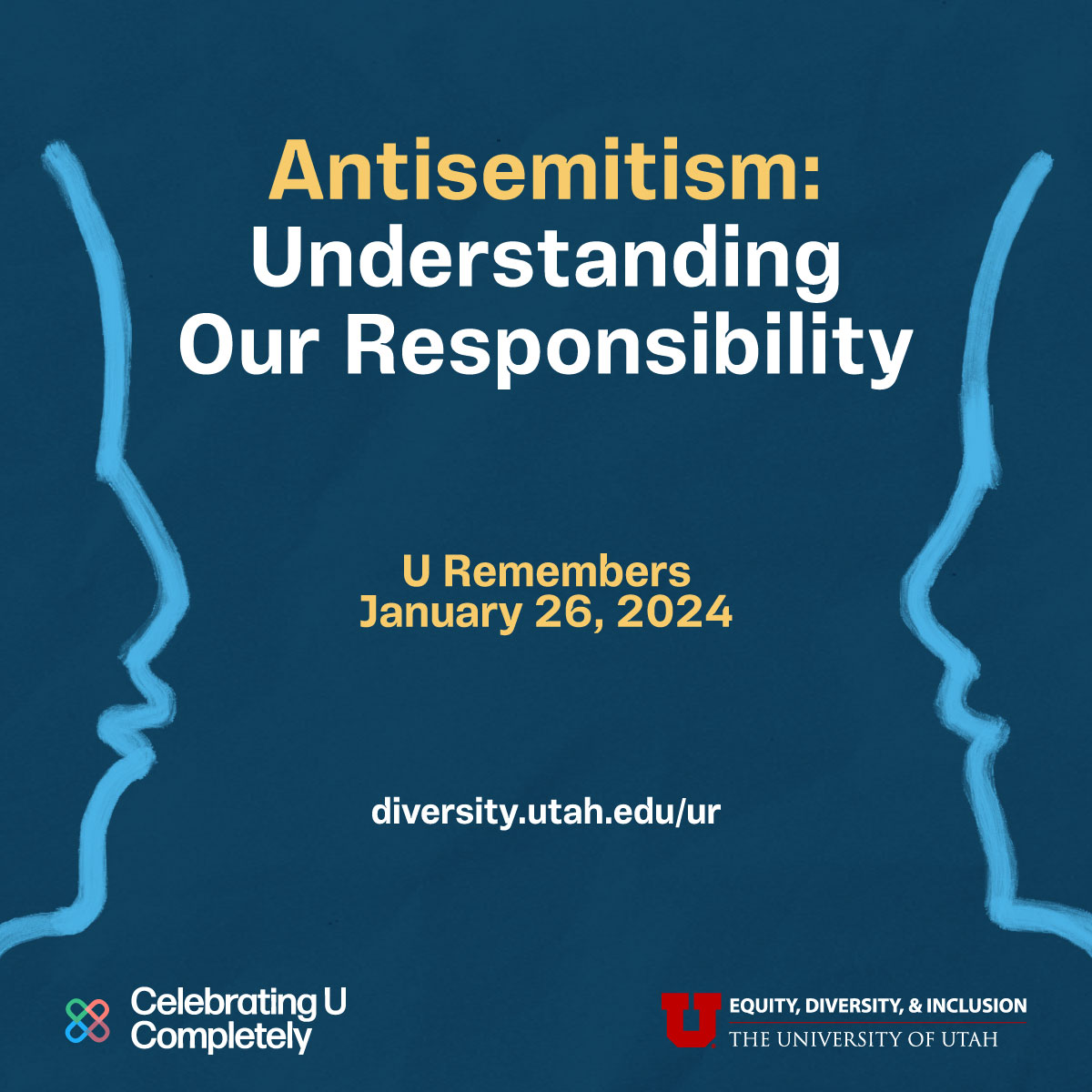For nearly four decades, the University of Utah has commemorated U Remembers each year to encourage campus to reflect on the historical effects of the Holocaust and make connections between the past and contemporary social issues. All are welcome to get involved and participate! U Remembers is planned by a volunteer committee of students, faculty, trainees, and staff collaborating across the university.
Equity, Diversity, & Inclusion
- About EDI
- Events
- Programs & Initiatives
- Black Advisory Council
- EDI Strategy Council
- EDI Strategic Plan
- Equity, Diversity, and Inclusion Onboarding Toolkit
- HBCU Partnerships
- Indigenous Land Acknowledgment Posters
- Interfaith and Belonging
- IntersectX12
- Latinx Advisory Council
- The Joy of Belonging
- MLK Youth Leadership Awards
- New Leadership Academy
- Racist & Bias Incident Response Team
- Seal of Excelencia
- Self-Study Guide & Toolkit
- Give to EDI
- EDI Request Form
- Blog & Newsletter
- The Joy of Belonging

 Upcoming
Upcoming Virtual
Virtual